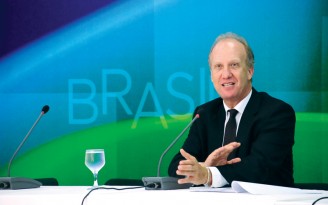
The importance of investing in renewable sources
By the Editorial Staff
Monday | November 30, 2015 | 5:58 PM | Last update: September 22, 2016, 4:07 PM (Brasilia time)

GOOD WILL — Is the energy sector increasing its greenhouse gas emissions?
Bárbara Rubim — Today it is the second largest source of greenhouse gases in Brazil, second only to soil use, which is responsible for most of the deforestation. But some studies show that over the next thirty years it is going to be the largest emitter we shall have. Therefore, the energy sector plays a key role in climate change.
GW — Which renewable energy sources are most viable in Brazil?
Bárbara Rubim — Apart from hydroelectric power stations, which are renewable but not sustainable because of all the consequences they generate in Indigenous and riverbank communities in the Amazon, for example, there are other renewable sources, such as wind power, solar energy, and biomass, and Brazil is extremely rich in all of them. Over the last four years, we have seen growth in wind power in our energy matrix, but solar energy, which is an abundant source in the country—no one doubts it is a “tropical country blessed [by God and beautiful] by nature”—and that could be generating electricity in the homes of all Brazilians, is still forgotten and ignored. . . . Greenpeace is working with a target of 100 percent renewable energy in our energy matrix by 2050. This is technically possible. The example of Germany is remarkable, because the best place in that country for the use of solar energy is 20 percent worse than the worst place in Brazil. Even so, ten million Germans benefit from this source of energy, while Brazil has just beaten its record of 700 systems installed—such a big difference.
GW — What is the main role of civil society at this moment in time?
Bárbara Rubim — The main role of Brazilian society is, in fact, that of following the negotiations that are taking place in the world and the official reports of the Ministry of Foreign Affairs— which is preparing our INDC (Intended Nationally Determined Contribution)—, and also to pressure government to be ambitious in establishing this target. We can no longer believe we have no power to change, because we certainly do have it.


